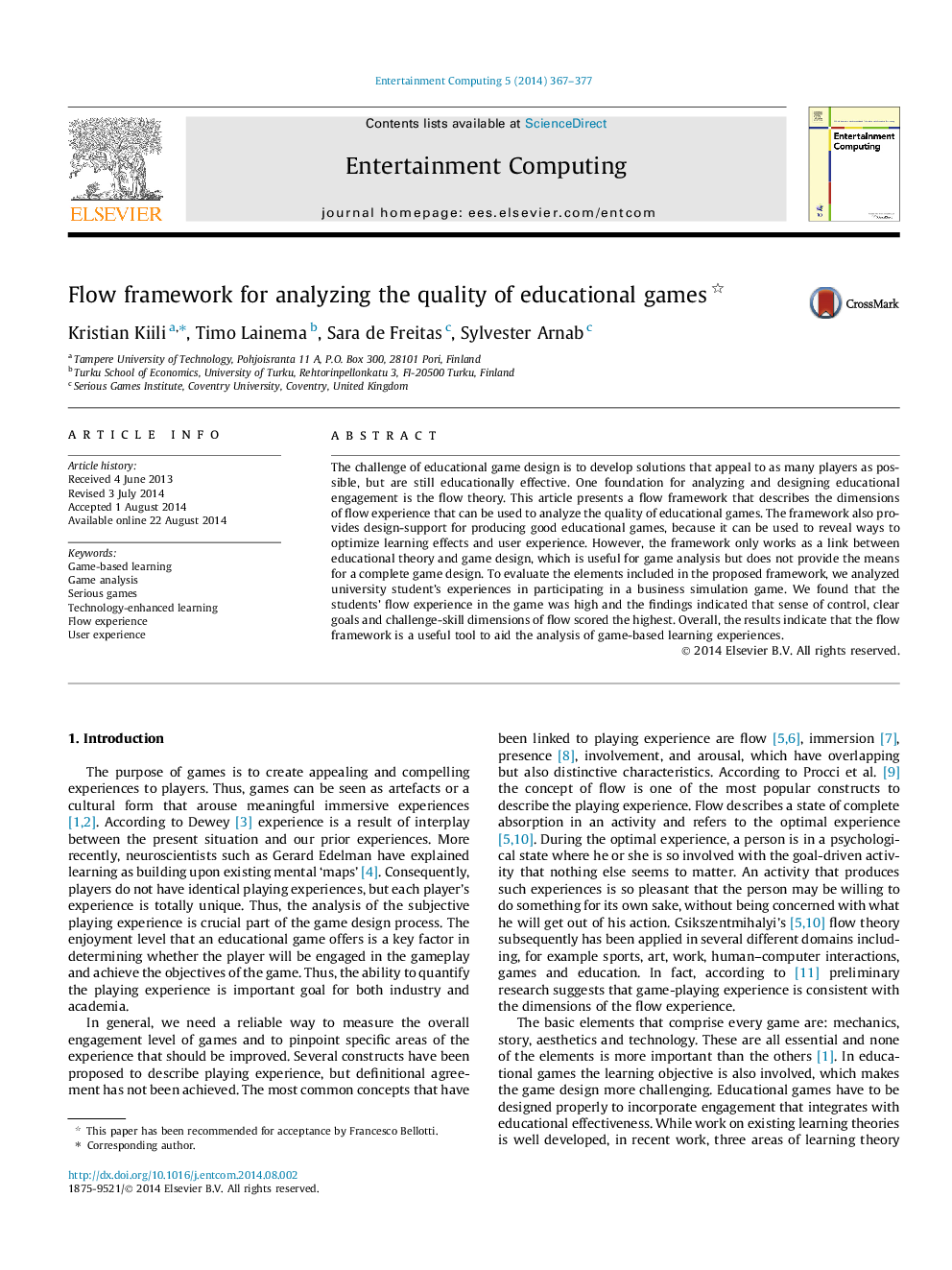| Article ID | Journal | Published Year | Pages | File Type |
|---|---|---|---|---|
| 381834 | Entertainment Computing | 2014 | 11 Pages |
•We propose a flow framework for analyzing and designing educational games.•Framework can be used to scrutinize game designs and reveal ways to optimize user experience.•Framework distinguishes mind lenses that aid to consider games systematically from learning and interaction perspectives.•The empirical analysis of the RealGame business simulation game indicates that the framework is useful.
The challenge of educational game design is to develop solutions that appeal to as many players as possible, but are still educationally effective. One foundation for analyzing and designing educational engagement is the flow theory. This article presents a flow framework that describes the dimensions of flow experience that can be used to analyze the quality of educational games. The framework also provides design-support for producing good educational games, because it can be used to reveal ways to optimize learning effects and user experience. However, the framework only works as a link between educational theory and game design, which is useful for game analysis but does not provide the means for a complete game design. To evaluate the elements included in the proposed framework, we analyzed university student’s experiences in participating in a business simulation game. We found that the students’ flow experience in the game was high and the findings indicated that sense of control, clear goals and challenge-skill dimensions of flow scored the highest. Overall, the results indicate that the flow framework is a useful tool to aid the analysis of game-based learning experiences.
